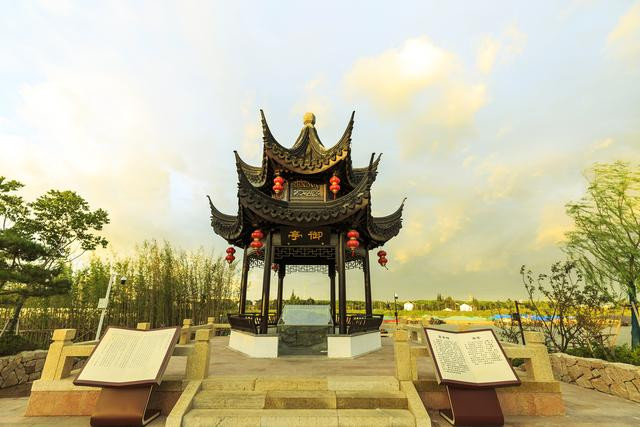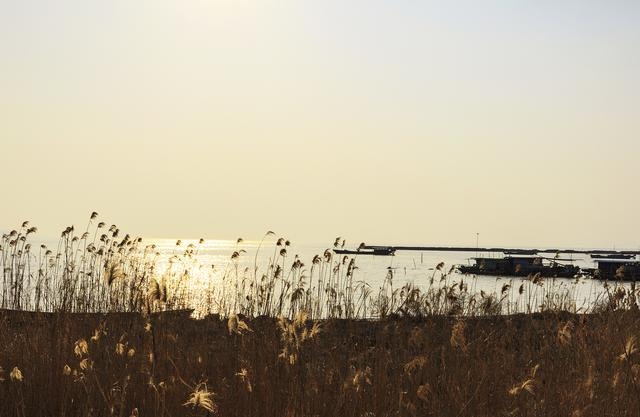Wangting's past: Zhang Lingfu transformed into "Zhao Zilong of Changshan" and defeated 30,000 Japanese troops with a regiment
Wangting Town, Xiangcheng District, Suzhou, is an ancient town with a history of nearly two thousand years. It is known as the "West Gate of Suzhou." The Beijing-Hangzhou Grand Canal passes through it, and the North Taihu Lake has been nourished for thousands of years.
Because it is located on an important road for land and water transportation, it has been a battleground for military strategists since ancient times. In the long history of more than 1600 years, Wangting has experienced countless disasters.
The past of Wangting that we want to talk about today is related to Zhang Lingfu, a famous anti-Japanese general. During the Battle of Songhu on August 13, Zhang Lingfu was ordered to guard Wangting to cover the retreat of the large troops. A regiment guarded the railway bridge and fought fiercely with 30,000 Japanese troops for three days. He firmly held on to a Japanese division that had captured 80,000 British troops alive. He could not advance an inch.


Before the July 7 Incident broke out, Zhang Lingfu was originally in prison. Everyone may have questions, he is Chiang Kai-shek's favorite general, how could he go to prison?
Zhang Lingfu was very talented. He was admitted to the History Department of Peking University in 1923 and studied in Beijing for more than a year. However, his family could not afford his tuition fees and was forced to give up his studies and enter the fourth term of Whampoa Military Academy.
When he married his second wife Wu Hailan, he was already a regiment commander under Hu Zongnan. One day in 1935, Zhang Lingfu discovered that an important military document had been lost and suspected that his wife had taken it away. However, Wu Hailan refused to admit it. Zhang Lingfu drew a gun and killed her.
The killing of his wife by the commander of the National Army instantly became the hottest street discussion at that time, and people from all walks of life called for severe punishment of the wife-killing thugs. Due to pressure from public opinion, Zhang Lingfu was sentenced to death. Later, his sentence was commuted due to his serious illness and he was sentenced to 10 years in prison.

After the July 7th Incident broke out, the National Defense Military Commission of the National Government issued an amnesty order: A full-scale war of resistance was inevitable, and the country was using people. All officers and soldiers of the national army who had served sentences would be released and returned to their original troops to atone for their crimes.
Zhang Lingfu was asked by Wang Yaowu, commander of the 58th Division of the 74th Army, who loved his talents, to serve as commander of his own unit. At the beginning of taking office, he went to the front line to participate in the Battle of Songhu.
In Jiading, the Japanese army relied on advanced weapons to attack crazily. When the national army could not hold on, Zhang Lingfu jumped out of the trenches and led the death squad with machine guns to launch a counter-charge, killing the Japanese army.

Zhang Lingfu's bloodiness is obvious to all. Before the Battle of Songhu, Zhang Lingfu, as the commander of the 305th Regiment of the 51st Division of the 74th Army, wrote a suicide note to his brother explaining his future affairs.
"This war against Japan is reserved for the struggle between the country and the nation. Good soldiers are auspicious, and their death is uncertain. My family should recognize me as dead and never see me alive. After Yu Guo passed away, I asked my parents to support me; I asked you to help me with my sons; I asked you to guide me; my wife kept marrying and let her go."Each word can be said to be heavy and soul-stirring. To this day, people can see the image of a hot-blooded Chinese man who died and became a hero.


As the Japanese army landed at Jinshanwei and was taken away from the rear, the national army on the Songhu battlefield had to turn into a general retreat.
The 74th Corps was ordered to defend the Suzhou to Wujiang defense line, and deployed a flank along Taihu Lake to prevent Japanese troops from landing from Taihu Lake to cover the flank of the retreating 300,000 troops on the Songhu battlefield.
Commander Yu Jishi believed that Wangting Town, located at the crossroads of water and land, would be a must-take place for the Japanese army, so he ordered Wang Yaowu to send a regiment to deploy in Wangting.
Wang Yaowu called Zhou Zhidao, commander of the 151st Brigade, and assigned Zhang Lingfu's regiment to him. He told Zhou Zhidao to command the 151st Brigade and the 305th Regiment to stand out on the front line and be responsible for defending Wangting and pursuing the Japanese army that was lagging behind.

Wangting Town is located in the northwest of Suzhou City, passing through the Beijing-Hangzhou Grand Canal and the Beijing-Shanghai Railway. It is an important transportation hub between Suzhou and Wuxi. If the Japanese army wanted to cross the canal, the most perfect route was to seize the No. 137 Railway Bridge and the Canal Iron Bridge at Wangting.
At that time, hundreds of thousands of retreating national troops were rushing westward. Under such a situation, the small troops left behind to block were often in desperate straits, and could only use their flesh and blood to fight for consumption and casualties with the pursuing Japanese army.
Zhang Lingfu's troops are weak, but the task is the heaviest on the entire front line. Due to insufficient troops, he only transferred one battalion to guard Wangting, while he himself led a battalion to guard the bridge.

The 305th Regiment was alone, with no reinforcements or supplies. This is the biggest test of the confidence of the general.
On November 18, 1937, the 305th Regiment occupied the position and made contact with the Japanese vanguard on the 19th. Faced with the Japanese bombardment, Zhang Lingfu picked up his gun and personally supervised the battle on the front line. On the 20th, as a large number of Japanese reinforcements arrived, the battle fell into a stalemate.
As a professional soldier, Zhang Lingfu has always been unambiguous in executing combat orders. In Wangting, he and the entire regiment officers and soldiers, with the courage to die, risked their lives to resist the Japanese onslaught, killing more than a thousand Japanese people, and gained three days of precious breathing time for the large troops that were retreating in chaos.
After three days of fierce fighting, the 305th Regiment kept the powerful Japanese army outside the railway bridge. On the evening of the 24th, Zhang Lingfu received an evacuation order and led the remaining disabled troops to blow up the railway bridge and evacuate Wangting Town.

When Zhang Lingfu returned to the establishment with the surviving soldiers, the commander Wang Yaowu took his hand and said: "I have been worried about you for three days. It's really lucky to be able to break out of the siege!"
Why did Wang Yaowu sigh so much? Because the enemy is really powerful, and this enemy is the notorious Kurume Division. The Kurume Division was composed of orphans taken in and raised by the Japanese army since childhood. Since childhood, it was instilled in the spirit of not being afraid of death, not caring for life, and only obeying orders.
During the war of invading Singapore, the division surrounded and captured 80,000 British troops with 30,000 troops, which shows how powerful its combat effectiveness is. Therefore, at the beginning, the Japanese army despised Zhang Lingfu's 305th Regiment, which was deployed in Wangting Town, and always believed that our army was vulnerable to a single blow.

One more thing to say here is that Zhang Lingfu is after all a student in the History Department of Peking University and attaches great importance to cultural relics. On the way to retreat, I received an order from Commander Yu Jishi to blow up the Baodai Bridge in Suzhou on the way.
Zhang Lingfu didn't mind at first, but when he came to the bridge, he hesitated. This Baodai Bridge is no small matter. It is a porous stone arch bridge built in the Tang Dynasty. It has a total length of 317 meters and is wide enough to accommodate two cars in parallel.
He understood the value of this bridge very well and couldn't bear to destroy the treasure of his ancestors in his hands. So, he asked soldiers to drive three deep ditches at each end of the bridge to set obstacles for the Japanese army to cross the bridge, in order to slow down the Japanese army. When Yu Jishi asked about it, Zhang Lingfu said that the bridge was too strong to explode. The matter was settled.
